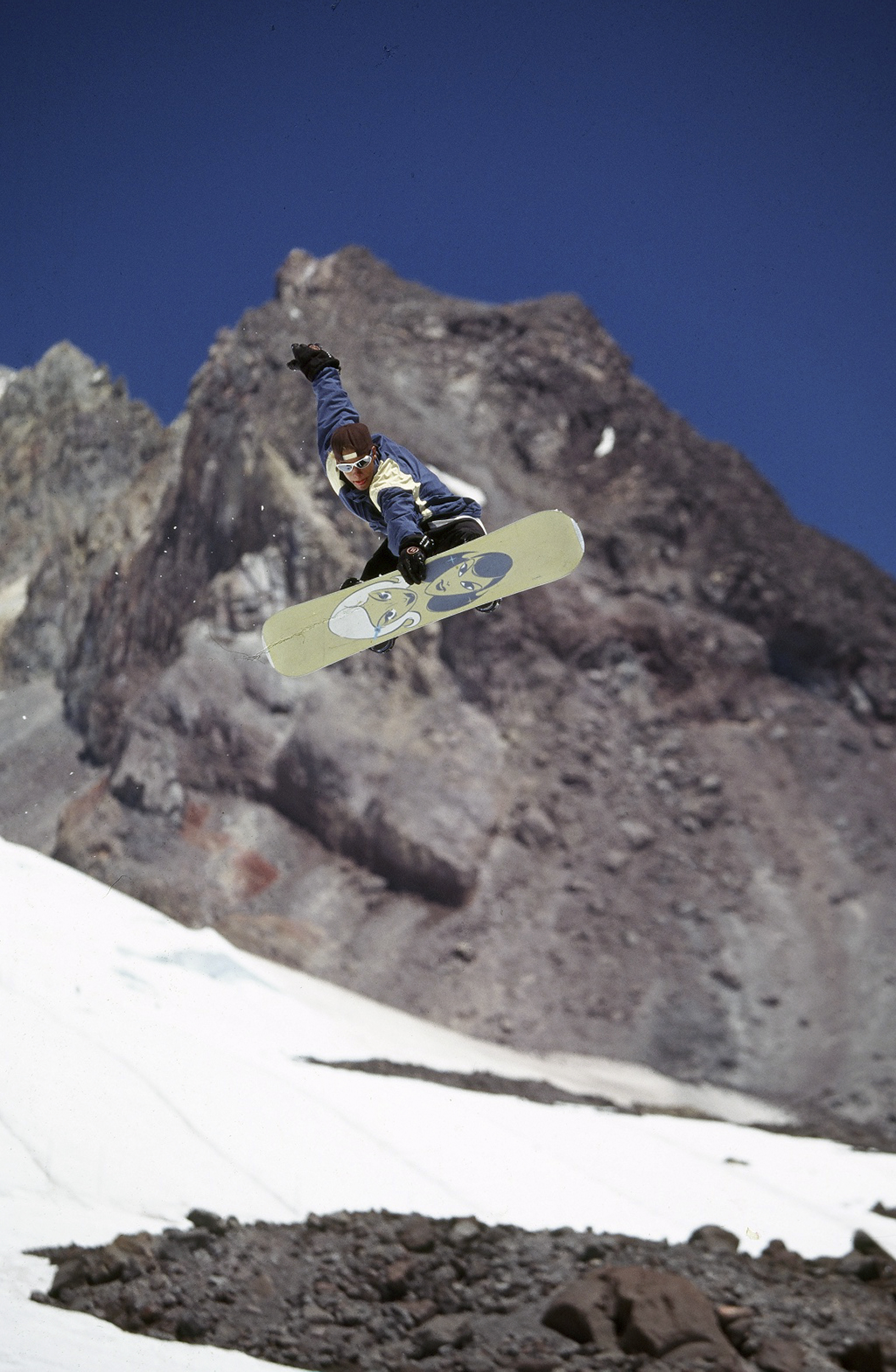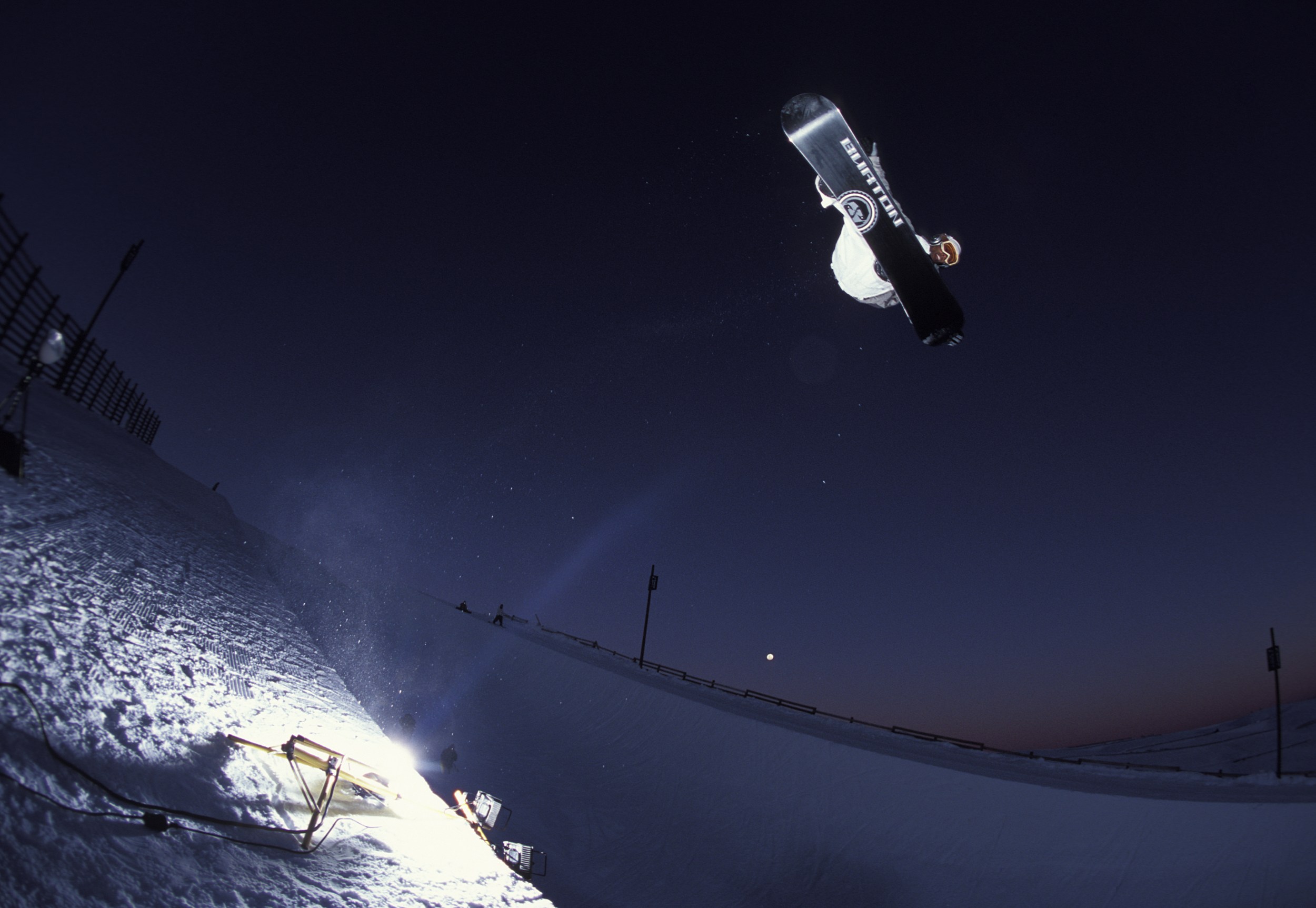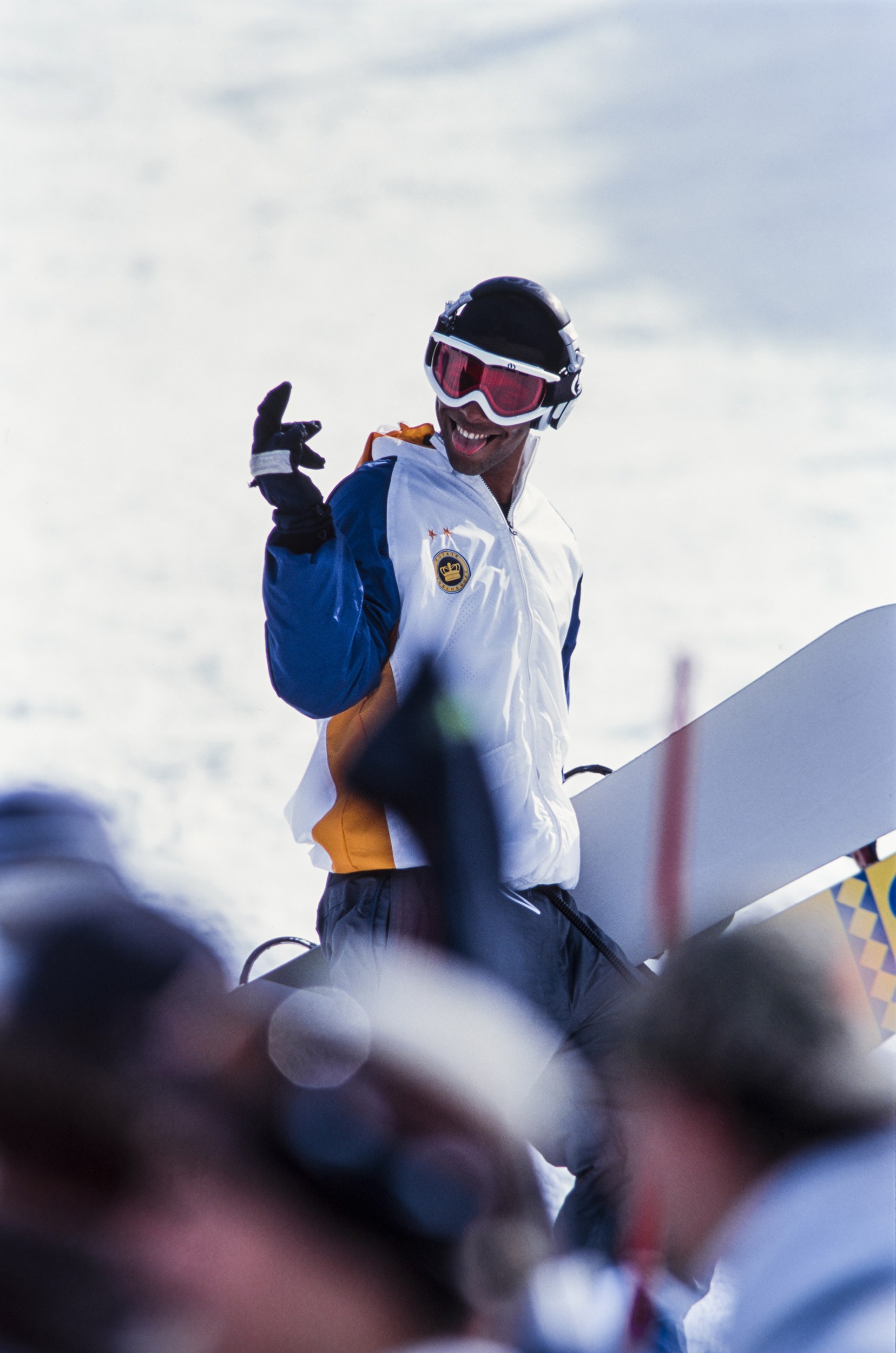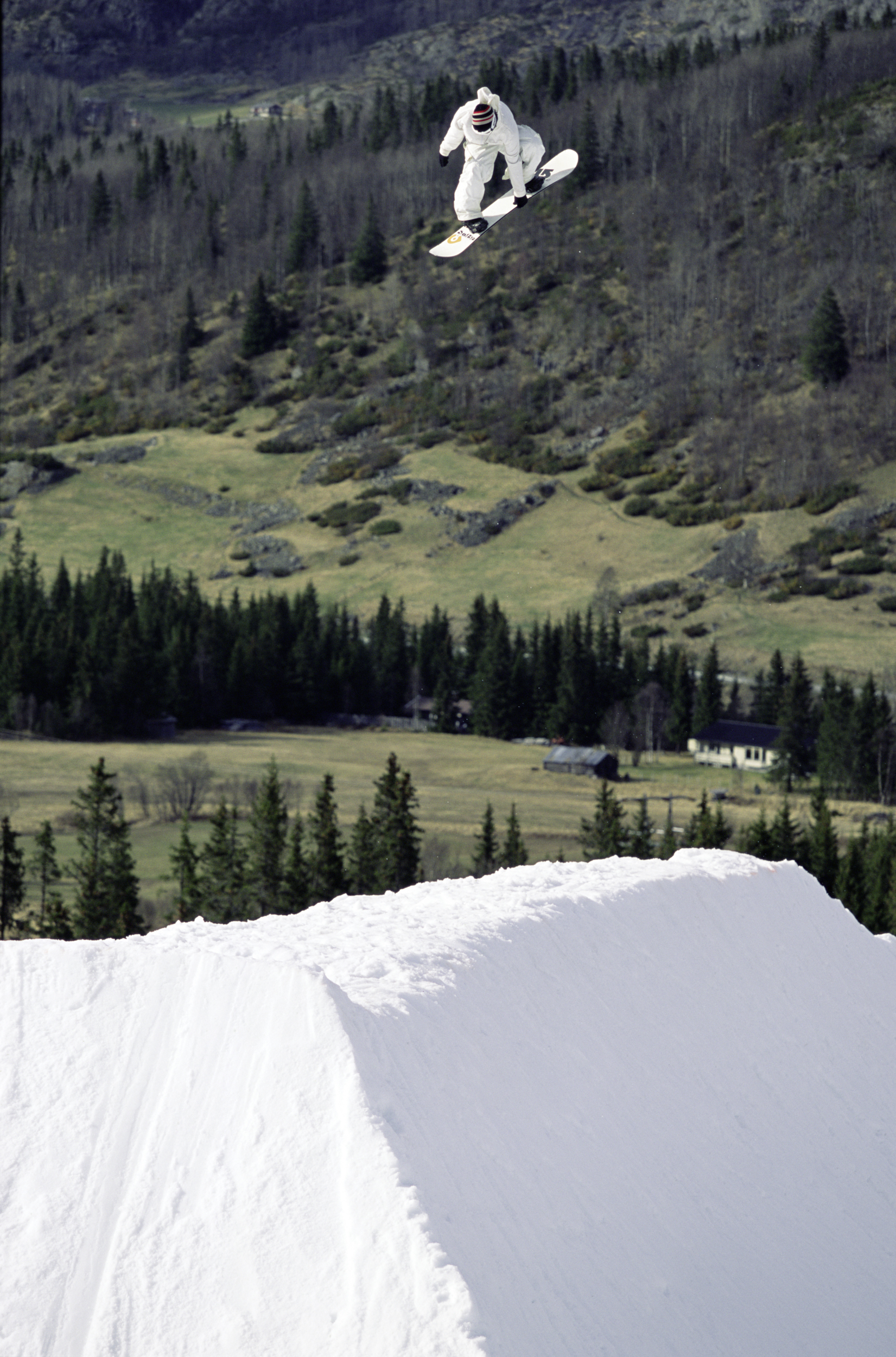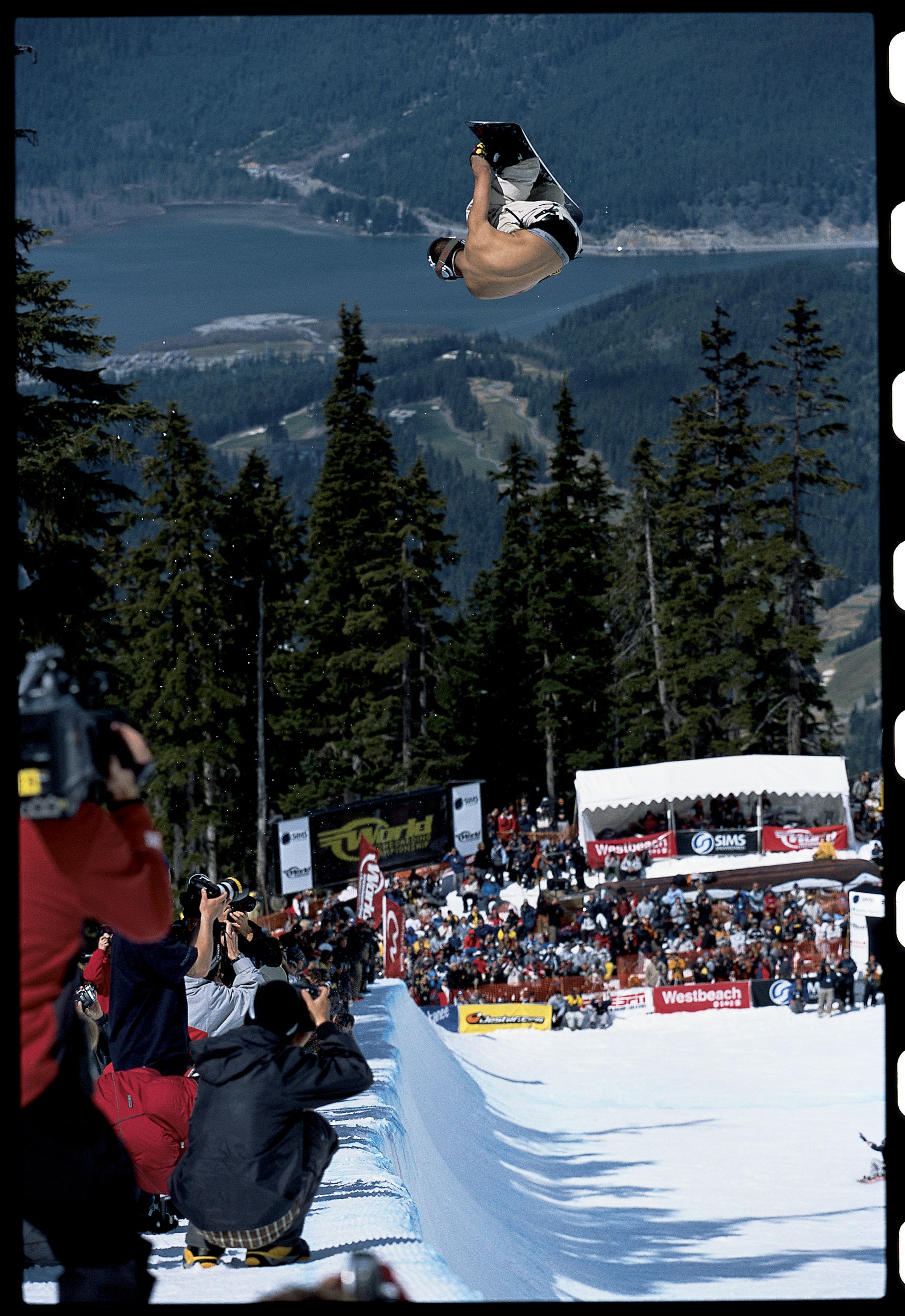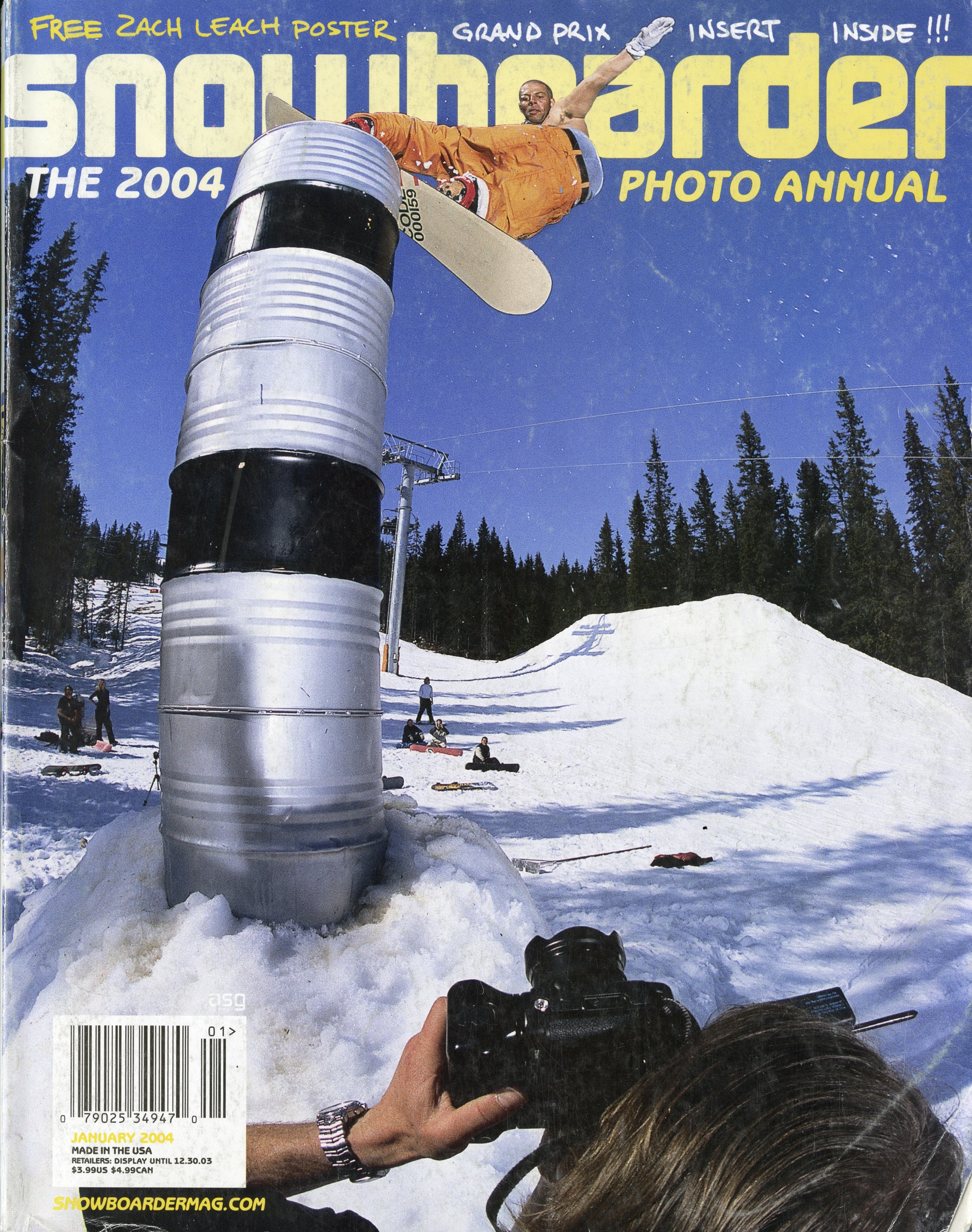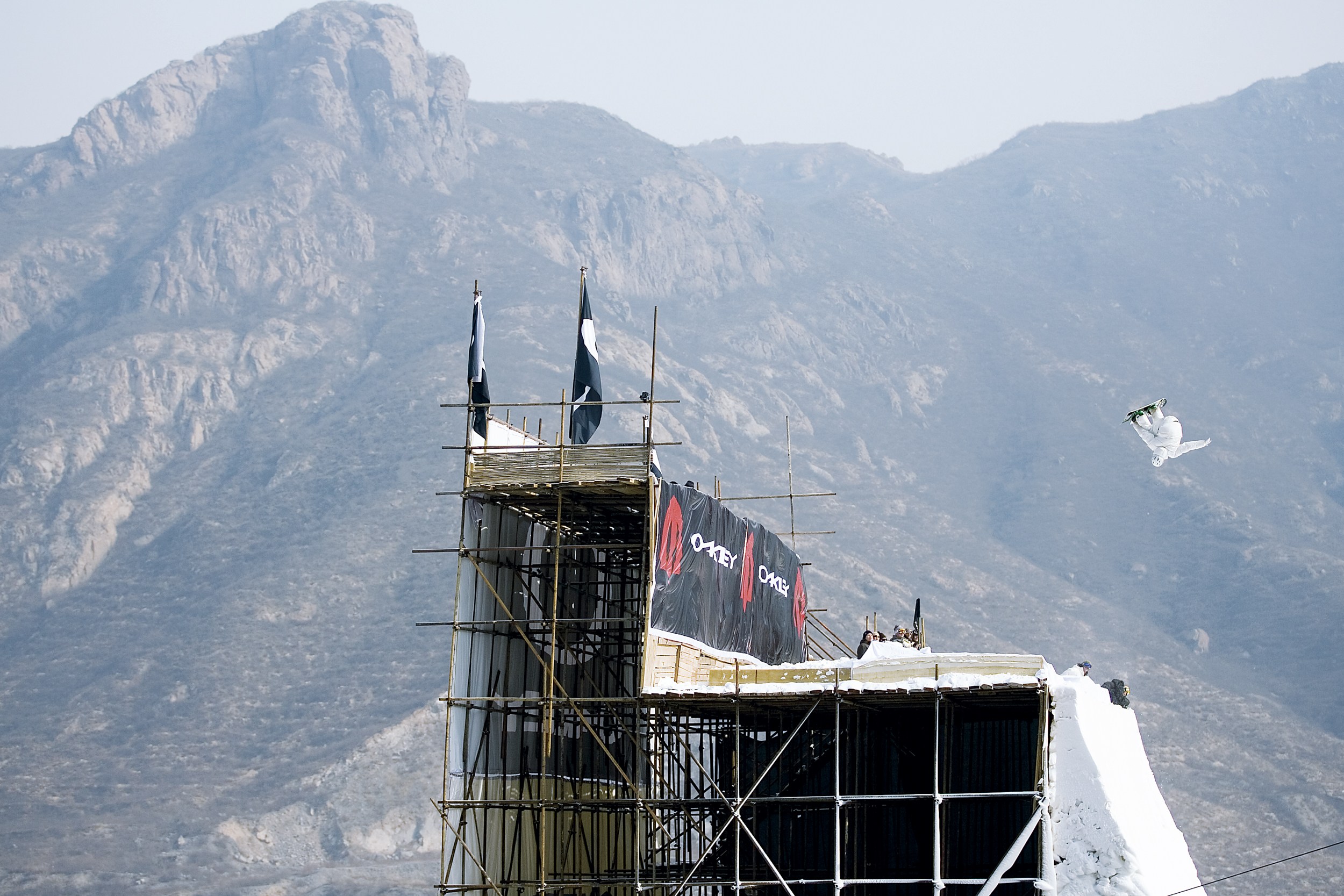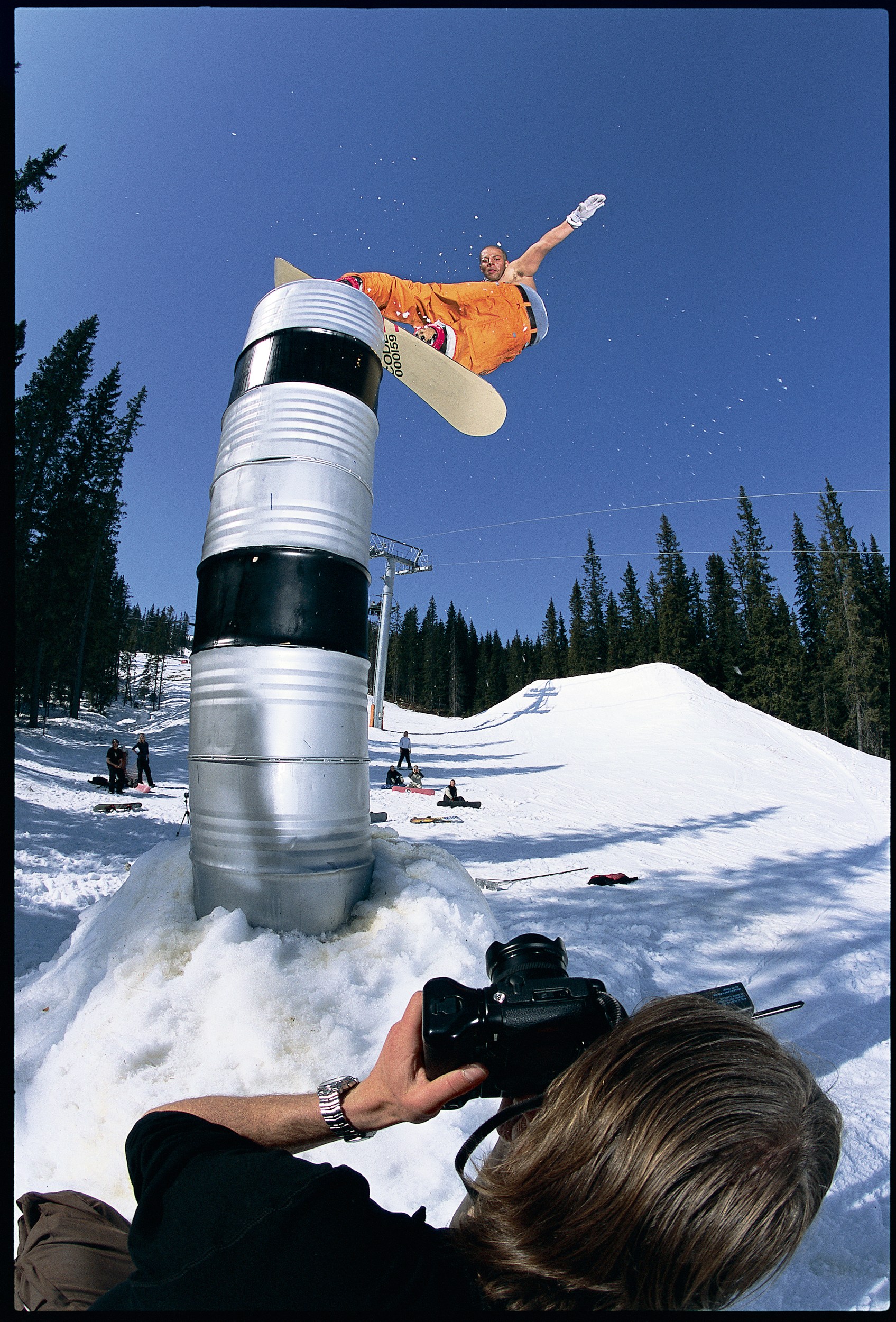Interview by Trevor Andrew
Keir Dillon came up in an era when style not only mattered, arguably it was the only thing that mattered. Sure, spinning to win might land you a spot on a podium or grant you an invite to the Olympics, but it won’t put you on the cover of Transworld or SNOWBOARDER, let alone two times apiece, and it definitely won’t earn you the respect of your peers. No one can recall who won the Sims Worlds in 2001, but everyone remembers Keir fearlessly flying shirtless, shoulder-down, base-high, headphones booming, triple overhead on the first hit of the Whistler pipe. That style always showed up and is why Keir Dillon never appeared in a bad photo or put out a soggy video part. Therefore, it should come as no surprise that Keir meshed so well with another arbiter of proper aesthetic, Trevor Andrew, during the mainstay of their careers. Here, two old teammates, competitors, influencers, and friends connect to reflect on the then and now of life, society and the struggle, and snowboarding. – Pat Bridges
I saw you for the first time in 1994 and we were riding the same board back then. That Twin 39.
The one with the girls on the bottom, right?
Yeah.
That was the money one.
Exactly. At that time both of us being young snowboarders on the Burton squad I wanted to meet you. I remember we met at…
The Junior World Championships in Japan in 1995.
From there, we just kept going.
Dude, yeah. That was a long time ago. We flew over on Air Nepal, which allowed smoking. That’s how long ago that was. I remember Sketchers giving us free shoes.
I’m thinking back to my first memories of you. You remember that mute stiffy shot? I’m trying to figure out where you were at with snowboarding at that time.
I was in the Poconos. My Burton rep was like, “Here, you can have this board,” and somehow he swindled a Twin 39. Then before I knew it, I was shooting photos with Jeff Curtes and Gary Land, and jumping off of anything. That photo was shot at Hunter Mountain, NY. There was like three magical days shooting with Curtes that led to my Burton Stumpy boot ad, getting a bunch of photos run, and getting invited out to Mount Hood.
The Stumpy ad! Yeah, crazy.
I remember seeing pictures of you during the same time, though. That was the power of the magazine, it stamped those images into your brain. It felt like it was moving, and then I blew my ankle rollerblading.
Right, I remember that. Besides you getting smacked on rollerblades, where were you?
I don’t know, there was this nice progression of notoriety and enough money to allow my mom to keep believing in me and not force me to go to high school all the time. Right around then, I had to get surgery and figure out how the hell to come back after blowing out my ankle. I remember my dad saying, “You’re not allowed to do anything you don’t get paid to do.” I can imagine he’s like, “Someone is giving you money to go snowboarding and you’re going to go fuck it up rollerblading? If they don’t kill you, I’ll kill you.” I think when you’re young, you’re constantly in a “now” moment.
As a young kid who is getting their first ads, you’re getting some shine and encouragement. Did you feel like, Oh, I’m doing this? I’m going to be one of the best snowboarders. This is going to be my life?
Man, it was so long ago, but I have to believe that I was clearly thinking I was going to be the man. I thought I was the man at chess, at poker, at playing cards, you name it. I wanted to win. It’s hard to ignore that feeling. It was weird too, even just showing up for the photo shoot with those guys, you’re like Whoa, these guys are getting paid? They aren’t doing shit that is that much doper than what I’m doing. That’s that level. The belief starts to build.
Soon it turns into, “Fuck these dudes!”
Well, that process takes at least a month to get to “Terje sucks.” Haha.
I think that’s what’s inspiring, to understand where you are mentally and how you feel about the process. Can you identify what you think are the top three pinnacle moments of your career?
I would say, for sure that three-day window of shooting with Jeff Curtes would be the first. That was just massive. It was the opportunity that put me on my first contract and all that stuff. The second moment would probably be missing the Olympics in 2006. That wasn’t a happy one, but it was a pinnacle. My dad had died six months before. As a kid, I watched Carl Lewis run track and field and I always wanted to go to the Olympics and represent the United States on that level. In our sport the Olympics was a controversy, but for me, the desire was still ingrained. I was excited at the potential to do it in the sport I loved. Like I love basketball, but I’m 5’10” and I can jump like three inches. That whole process was such an amazing journey, to see where I put effort in, what I tripped up on, the stress, all that. Then for it to come down to a final run, and to just not land it was a good reminder that we build up these things to be bigger than they are. Like, If it doesn’t happen, I’m going to be dead. But no, you leverage it for good no matter what.
Well first of all, you didn’t miss much. I was there, I flopped. I probably only made it because Canada didn’t have as much competition as in the States. But the way you need to earn points for your country, it’s all based around one specific thing instead of the actual core. It’s created by a super regulated system.
It’s funny to be reminded of all that drama, for lack of a better word. I totally agree with what you said, but that’s what makes it the Olympics. It’s about who can perform on that single day. Or even get to that day. If you made it through in the States, you were pretty much guaranteed a medal. But it’s also more than one battle, right? I mean fuck, I think I tried for three of them.
I don’t even think I’ve watched the Olympics since Danny Kass’ run in 2002.
At least for me, the frustration was all prior to actually getting there, meaning it felt like if you went to the Olympics, you were set for life. Coming from Pennsylvania, I hear people saying, “Dude you need to leverage what you’re good at to make money,” and I don’t know if I ever actually had that mindset of finding something I’m good at to leverage for money. It just happened for me. It kind of worked out in that way, but I did recognize that if I went to the Olympics, there would probably be a good chance that I’d do well, and then you felt like you’d be set. Whether that’s true or not, the amount of pressure was massive.
What’s your third pinnacle moment?
The third one was that McTwist.
That’s what I was going to say. That one stood out to me. I mean, there’s so many moments with you riding over the years that I could point out.
The crazy thing was earlier that year, I got the talk from the Burton team guys, Eric Kotch and René Hansen. It went pretty much like this, “You’re a good snowboarder, but we’re paying you too much and you’re not performing, so we gotta cut you. Not that we’re going to cut your salary, but we have to cut you completely because you’re not producing.” At that time, I’m pretty much all in, so I don’t have any back up plan except for making sure the first plan works. So, I got motivated. Let’s go make this happen. That specific McTwist was at the Sims World Championship, which I had always wanted to go to. I remember being there in Whistler and the energy—I had never even been to a place like that. The whole festival was mind-blowing. I was with Damon Morris, and I was into trance music, house music, techno, and they were having a rave in this huge underground village, haha. So, we went, and the next day was the contest. A few things led to another few things, and before you know it, I’m rolling and it’s 7 or 8 in the morning. Someone was like, “Dude you have a contest in like an hour!” I remember just still rolling, kind of coming to my senses enough to be like, Holy shit. I ran to my hotel, got my stuff, went up to the contest. Everything was very visual because they just said I’m going to get fired if I don’t start performing. We roll up, start the contest, I think it was a jam format. I couldn’t make it down the whole pipe because my legs were too tired. I’m just like, Dude, you fucking idiot. I don’t know what it was, but the first hit started feeling good, so I started just doing the one-hits. I was thinking at least I can get some photos here. It led to dropping in a lot faster for some reason and just kind of clicking into that zone, being like in the moment, feeding off the crowd, and having fun and not stressing about the contest.
You were still in the underground tunnel from the night before in your headphones.
Totally. Everyone’s like, “Why are you taking your shirt off?” I’m like, Well I’m sweating for multiple reasons. That day was cool because it was bringing it back to the fun of snowboarding before all the stress. Sessioning something and not really caring because my mind wasn’t in a place to fully care. Just progressing in the moment. I wasn’t thinking about the repercussions in a positive light that can happen. That day, I remember I met my ex-wife. There was a ton of things that just happened in that one moment. She rented your house! You’re like “Dude, I think you’re dating the person that rents my house.”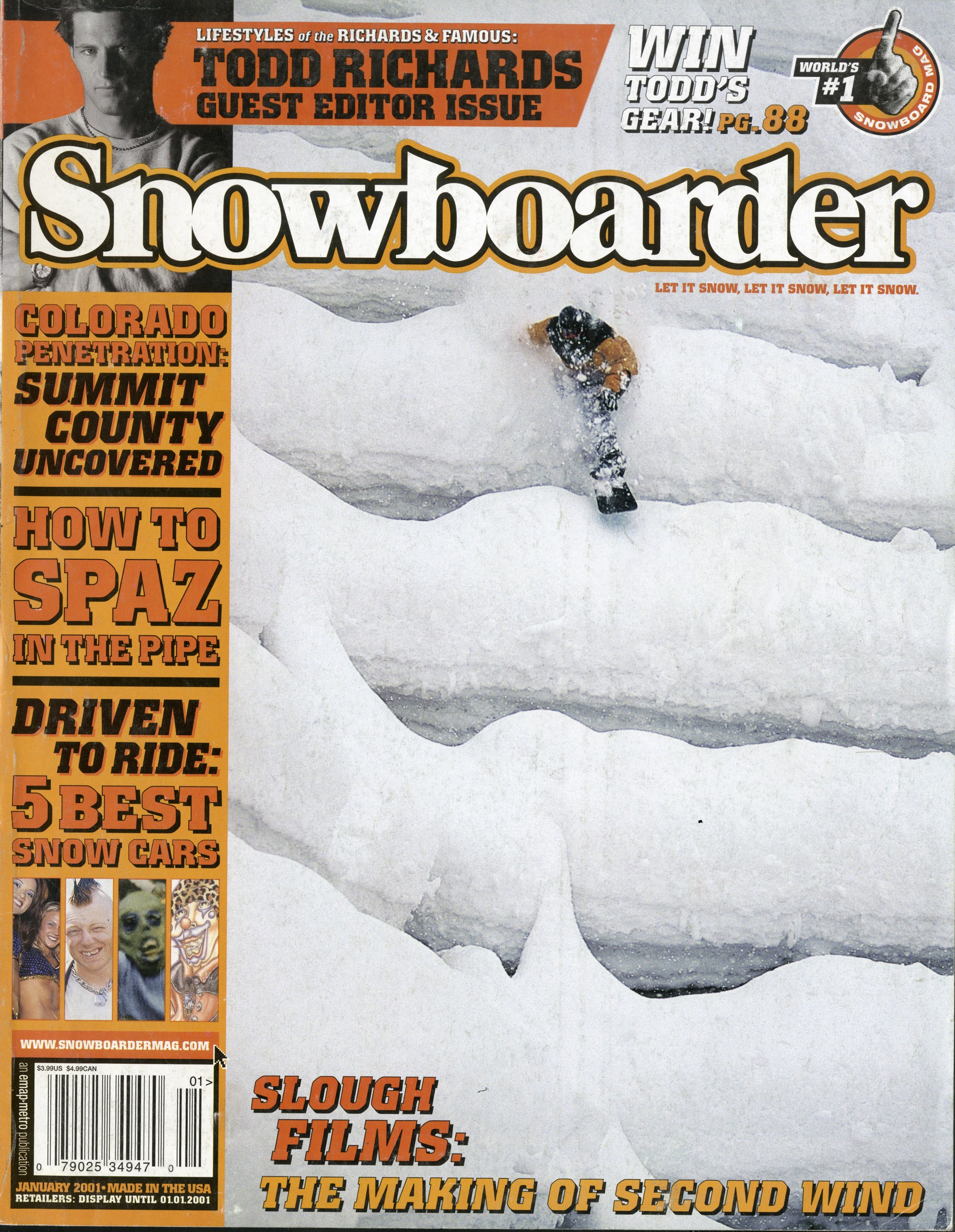

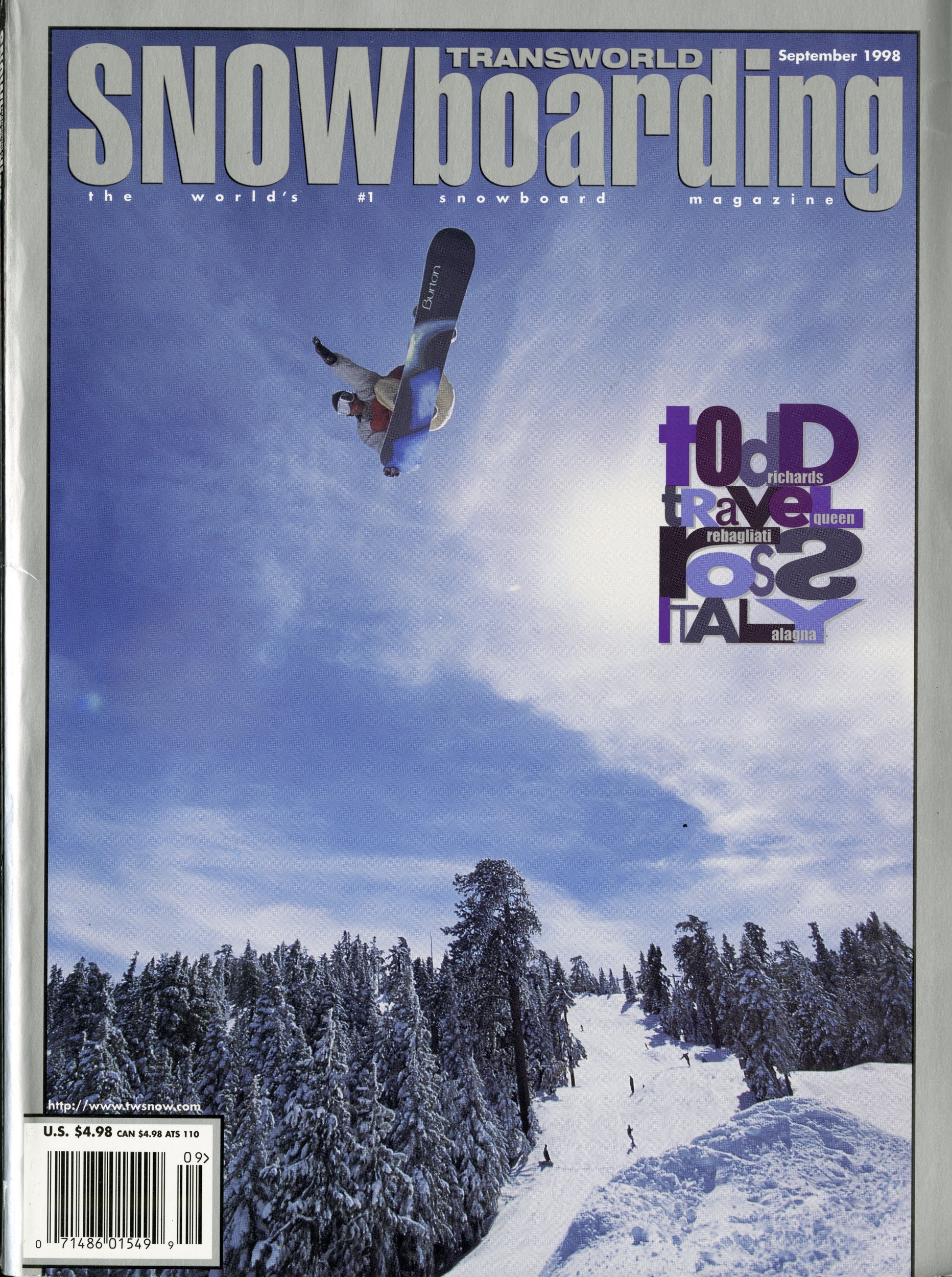
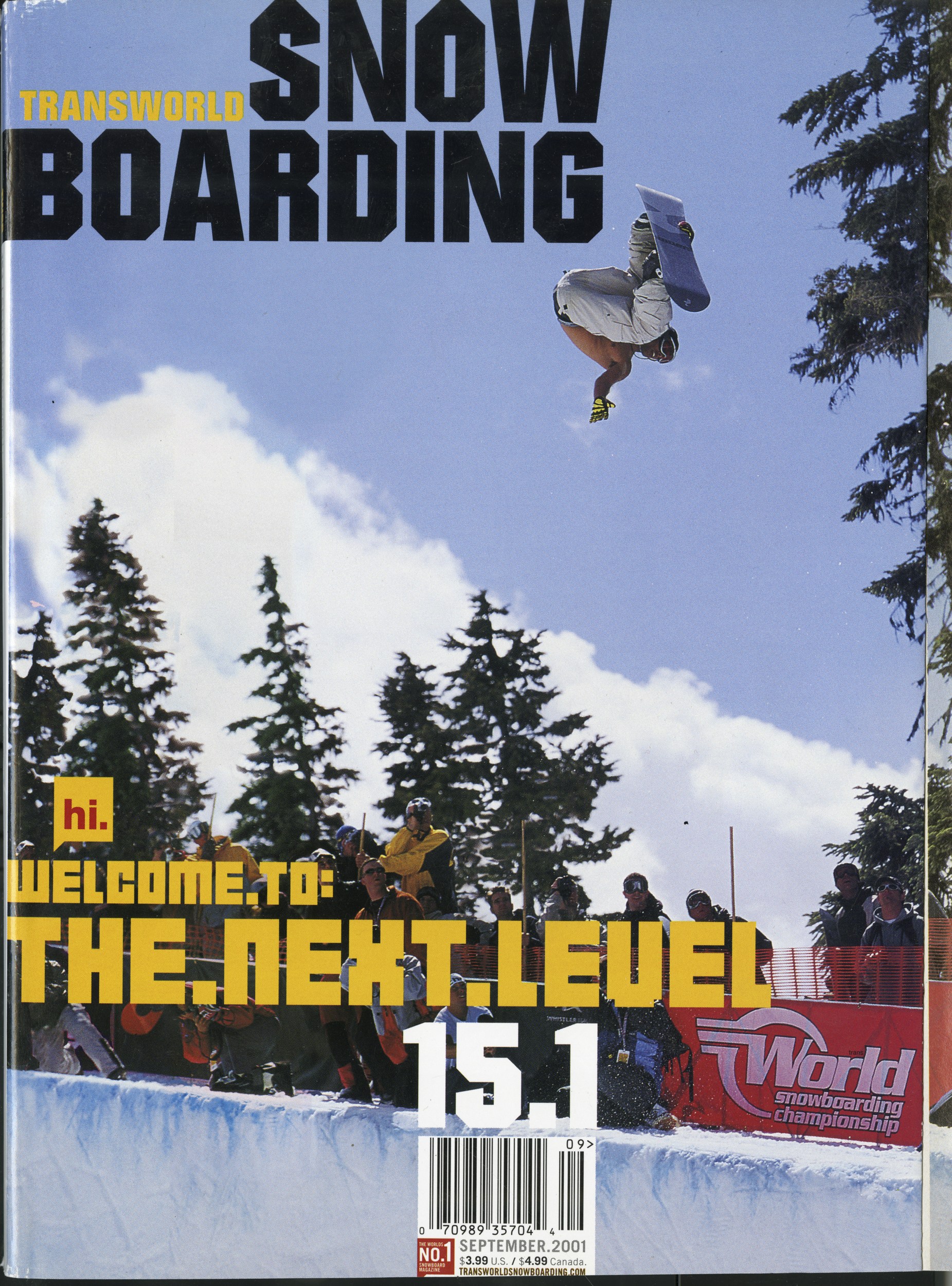
Yeah, that’s right. That’s so crazy how small the world becomes sometimes. That was so epic. Didn’t that become a cover shot?
It was a Transworld cover. It was Transworld Japan cover. I got like six B-grade covers out of it, plus Transworld.
So, what were Rene and Eric saying after that?
Then things changed a little bit. You have these moments in life that when you actually rise to the occasion, and it catapults you so much further. Like Bridges was saying, that shot is second to Ingemar’s as far as like the most-documented and seen moments. At a time when it was controlled what people would see, everyone kind of knew the Black kid that was able to do a massive McTwist from the Transworld cover. I don’t know, man. Those moments? Fucking bring ‘em on.
Totally. How much do you think about snowboarding now?
I think about it a lot more now. I only equate it to the effect my father’s death had on me. When I first found out he passed, I started writing down every memory I could think of. Things he taught me and things he told me. I realized that all of his love and teachings shaped who I am. Snowboarding was just as impactful. It taught me how to dream, taught me how to set goals, taught me how to believe in myself. That saying, “everything you see, some other human just like you created it.” I’ve traveled with the best in the world, I’ve been with the best photographers, videographers, whoever, and you get to humanize that. For a long time, I lied to myself about the fun of snowboarding. I think you just get over it. But now, having gone through life and gone through some struggles and all sorts of stuff, I attribute everything to snowboarding. When Jake died, I had to deal with the memories, like you and I going down to his place every summer and going through every product and arguing with him. Ultimately to realize, You know what? You guys know what’s cool, not me. You’re sitting there with the owner of a billion-dollar company that’s letting you make decisions. All of those things built confidence. It built an understanding. Negotiating contracts and dealing with that, it was the greatest life lesson, ever. Sports are the best development tool for anyone, especially when you hit a certain level. It just pushes you in ways and into areas that you can’t even imagine.
Definitely. Jake gave us the lifeline to be able to pursue the dream and the physical aspect of being a snowboarder, and beyond that, going out to his place and having that personal relationship, having our disagreements and being part of the creative process.
Not only given the opportunity to be able to make the decisions, but encouraged. Like, “Hey when you come to my house, bring your opinions. Don’t show up if you don’t, because we need people that are going to voice it.”
I remember voicing it a little too hard one time. You were like, “You can’t tell them it fucking sucks.”
I’ve been thinking about it, like starting life completely over and having to rebuild. I’ve tasted it. When people talk about manifestation, I’ve lived it. If you think it and you visualize it, you can see it. Whether it’s a trick, whether it’s your career, whether it’s winning a contest, architecting the whole year.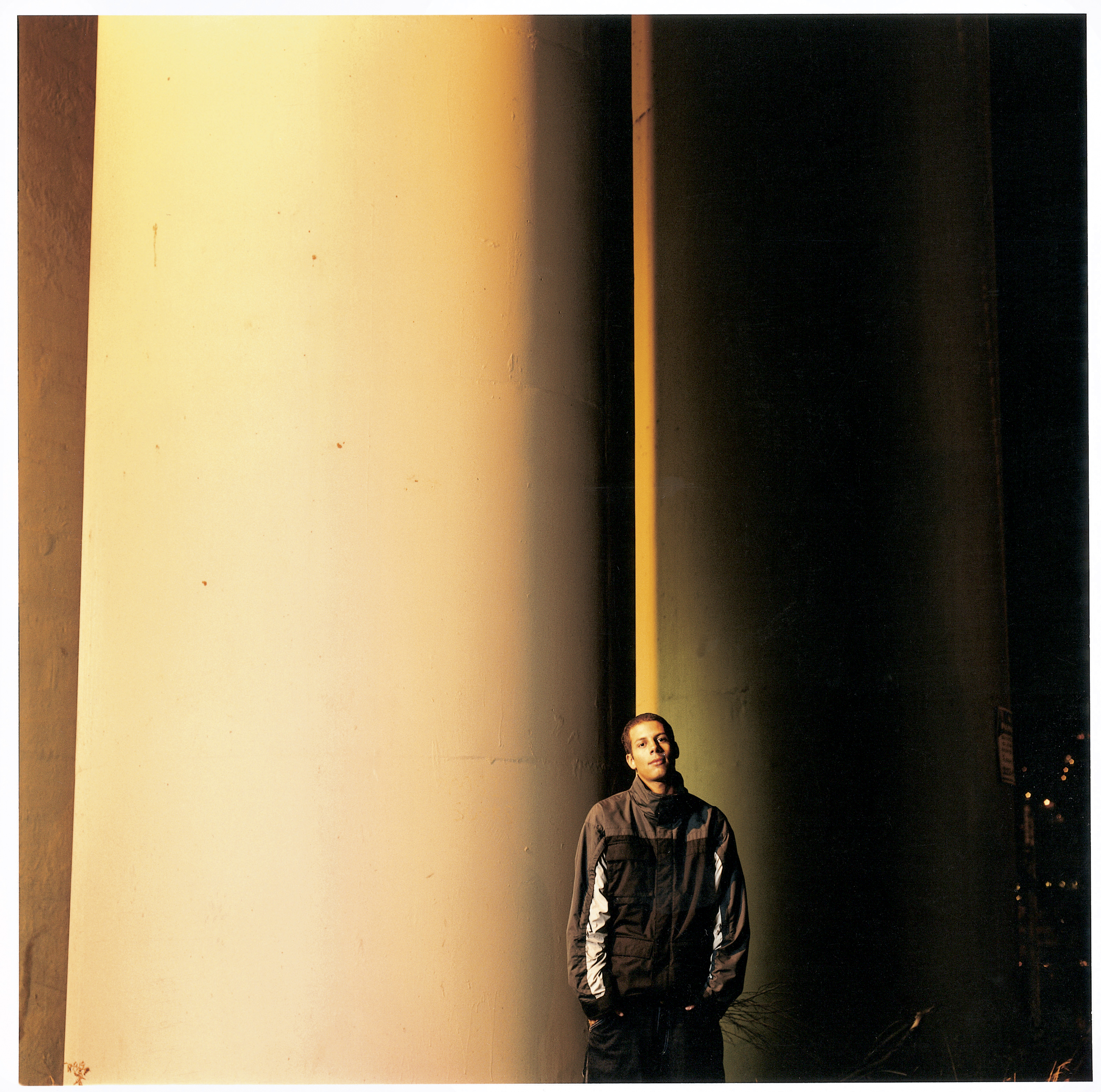

Who were your heroes growing up?
I think my influences always came from closer circles. Growing up skateboarding, I had an older brother. They’d call me Little Jhi, and I took lots of inspirations from him and his friends. When I got into snowboarding and BMX, it was an older crew of straight edge kids that were basically forced to hang out with us because back then, there wasn’t that many people snowboarding or BMXing. They were just the role models of how to show up, how to train, how to get out of the gate. And they were straight edge, so up until I was 21, I didn’t have a drink, I didn’t do drugs, I didn’t do anything because that was the role model. For snowboarding, same thing. It was closer. Traveling, being able to meet you, meet Ross Powers, meet some other superpros—it was more the inner circle. Even Terje, he was a god, but it didn’t become real until I got the invite to go to The Arctic Challenge. I think back to it now because it feels like such a dick move, but I remember thinking, Dude I’m taking you down. I’m going bigger, I’m showing the world. I fully remember having that angle. Like you invited me over here, but I’m gunning for you. He humanized it. It was like, Dude, you’re a human and we can battle it.
Yeah. From his perspective, he was probably like, “Those fucking little shits,” but I relate to what you’re saying. I also felt that way. Once I was on the same court, on the same turf with dudes like that, I’m like, Shit, I’m here, it’s my time. I got to fucking step up. I don’t think it’s a disrespectful thing. What, are you supposed to bow down when you’re in the arena? Fuck that, I’m going to try to take you out.
Yeah, and it keeps him sharp.
Exactly. That’s the name of the game. Others help us become the best that we can be because we see what is possible, and when you’re there, you push yourself.
That’s just how we grew up. BMXing, skateboarding, it was just so much trash talking. For me, very basketball. Not hate, but the fun gaming of it.
Obviously, we’re a little bit separated, but we’ve still got our eye on what’s going on. From your perspective, is there anything that you’d like to see change in snowboarding? What could the shred community or industry do to break the entry barrier and provide more inclusivity? Is that something that you’ve ever thought about?
I mean, yes and no. Because I just fell into it—meaning, growing up in a super small town I happened to know someone who owned the mountain, so they got me a job to get a free season pass—so it was very natural, in a way. The barrier, even with just having a kid now—it’s disgusting to think that it’s going to be $150 or $200 per person to go up to the mountain. Before you wanted the hook up just to not waste money, but now it’s not even feasible unless you have a hook up. I’m working a normal job. I can’t even imagine. Then you go up there and your kid is complaining about it being cold.
I was always fortunate in the same ways. My mom worked at the ski hill. I lived right down the street. I was into skateboarding. It was a natural thing. But that was very unique. When you look at the rest of the world, there’s a huge difference. I even remember talking to Jake back in the day, like “Man, how could we make the cheapest board ever that comes with 10 free passes and how can we link that up with a local spot?”
Right. Like you said, even if it’s a cheap board and cheap passes, if you live in San Diego, which is somewhat close to the mountain, it’s still a far drive. There’s just so many variables that come into play. But I think if people can be inspired, then they can make that jump. A kid hit me up last year, he’s an actor. Black kid, just super driven, has a lot of pain, as well, but leveraging the pain for his creative expression. He’s like, “I’m moving to Tahoe, I’m doing this, I’m going for the Olympics.” Part of you is like, Dude, you’re kind of crazy, but I believe you. He’s with like twelve friends right now in Tahoe trying to make it happen. When there’s a drive, you’ll overcome all the barriers.
I think that the social media and shit has helped at least expand the viewpoint to people. Back then, you almost had to be so close to it in order to discover it, in a sense.
I remember when we used to film, you’d be in Chile for two weeks and not know if you technically got a shot. Was the angle good? Is it going to be developed? Did you catch it in time?
Then you see it at the end of the year and you’re like, “FUCK! You told me I stomped that shit.” Or they missed the shot. Now we would’ve been making our own movies. I think it’s so rad that kids now can portray themselves and showcase their true personality and everything that they want to do. This has obviously kind of dismantled the industry in the sense of production, the same way that the music industry kind of got dismantled, and now it’s putting itself back together.
With the dismantling, I even think back to how my growth in creative endeavors came from being around creatives, whether it was Curtes, Blotto, Justin Hostynek, Mack Dawg—they were always pushing innovation of how to film. I think sometimes when you have total control, you can actually limit your potential. When there’s a demand for multiple people, it almost creates this magical recipe. Like anything in life, there’s the good and the bad.
I think it got to a point where it expanded as far as it could go. Then it went to TV, it went to X Games, it went to all this other media exposure. It almost exploded, and now it’s the new visionaries, the new Mack Dawgs, who are basically just using different tools. I think it’s showcasing more personality. With a big-time industry hand on everything, it limited riders to have their own voice.
Well, they didn’t call it trick porn for nothing. You’d be lucky if you got one shot in there doing something that symbolized who you were.
Yes, it’s important to be able to go throw yourself off something and do a double fucking triple fucking whatever.
Doubles are like McTwists now. They’re like, Dude, stop milking that double.
Let’s go back to your experience being one of the few African American snowboarders.
Snowboarding gave a platform to almost not have to dip into that frequency, meaning like, yeah, you can, of course, have it impact you. It’s almost like hate needs a rival to go against, so in snowboarding, by being able to travel and being able to have freedom, it offered a kind of escape. You can hate me all day long for whatever reason; maybe I’m an asshole, maybe I’m Black, whatever it is, when we show up to the pipe, the judges are going to decide. There’s actually a stage. I think that’s even better. You hate me because of some crazy things like the color of my skin and you feel there’s a supremacy, and then you lose? That’s magic. I don’t know, I never tripped on it. I felt very blessed. Also, the way I was raised, my dad planted the seed. He’s like, “You’re in an airport and you sit down and someone eight seats away grabs their purse closer,” like just the nuances, but even that, it’s more the programming than it is the consciousness of it. That sucks. I think what inspires me about snowboarding is the fact that that vehicle can allow you to not trip on it. That’s what you want for anyone. I was listening to Elena Hight yesterday talk about women. Even just think about that, like, “Oh you’re riding like a girl!” That’s gnarly. For someone to say, “That dude is a n—–,” it’s aggressive. But to say someone rides like a girl or something, that is so accepted and gnarly. It was cool to hear her perspective speaking about similar things. Getting the stage and taking it.
I wish I could ride like a girl!
Dude, hell yeah!
Of course, there were always girl skateboarders and always girl snowboarders, but now on Instagram, all day I see so many girls snowboarding and so many girls skateboarding at an insane level. It’s so rad. What do you think snowboarding has to offer the kids?
I think it’s the ultimate personal development tool. It allows you to connect with yourself, your mind, your ego, your abilities. It’s the platform for triumph, pain, everything. The other one that I realized later in life is probably one of the more important, connecting with mother nature. Visualizing, learning to live in the flow, that magical point where what you’re doing is interacting with the land and nature. It brings it back to the “now moment” I talked about in the beginning.
Obviously, we are a little bit removed, but when you look at snowboarding today, what is the growth that you can see from when you were doing it? Triple cork 5000’s?
Haha. It’s interesting. When I watch it now, the one thing that stands out in my mind the most is what I also loved about it. I remember sitting in conversations with you or Luke Wyman or whoever, about what is possible—how big you think you can go out of the halfpipe, what tricks will they be doing in the future. Even during our time, you can change that in a year or even change that in a day. To now see it, I love that reminder to not get stuck in your head. Don’t let the programming of the world get you thinking that things aren’t possible. I love that snowboarding delivered that gift of “anything is possible.” I’d have arguments with people about that, but it was so ingrained in us. Dude, if you want to do something, do it. When I look at it now and I see the crazy tricks they’re doing, or the stress or joy at contests, it reminds me of pieces that I’ve tried to pull with me from snowboarding, but I think have been lost. As we age, the world does beat us down in some aspects, so it’s awesome to be reminded of those pieces and light that fire and champion it again.
You can’t look at any other sport in the world and see the amount of progression in the amount of time that has happened with snowboarding and skateboarding. You even have your own trick named after you, which is so cool. To think that kids are out in the mountains like, “Yo, did you see that fucking triple KD roll?” It’s so rad. That’s such a unique thing when you think of the legacy you’ve left as a snowboarder, being a part of that rapid progression, shaping it and moving it forward.
That’s the gift of snowboarding. You’re in your studio right now doing art because you want to take it to the next level and innovate and communicate ideas for people. That’s part of it. That is the gift. To think, Hey, I’m going to impact the art world. Most people are like, yeah whatever.
Exactly. I think the hardest thing for people to believe in is that you can fucking do it, man. It doesn’t matter if it fits into this idea of what your teachers or your parents or anybody told you. If you don’t believe, then shit, you’re going to get fucking broken off. For me, in the perspective of anything I’ve transferred the energy of snowboarding into, it’s exactly that. If you really want to change the game, you’ve got to be somewhat irrational. I think that being a pro snowboarder, you have to be kind of irrational. People are going to be like, “You’re going to fucking kill yourself!” But you’re like, “Hell no, I would kill myself if I had to do anything else.”
Amen to that.
More from SNOWBOARDER Magazine here.
Original Post from this site
